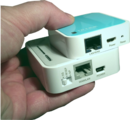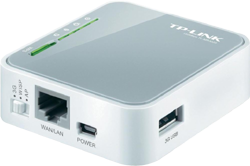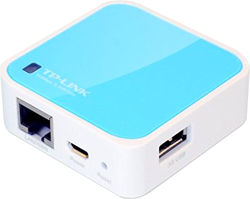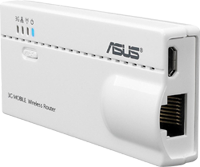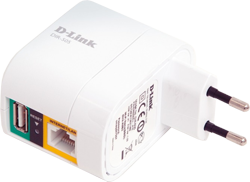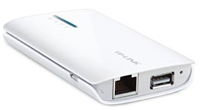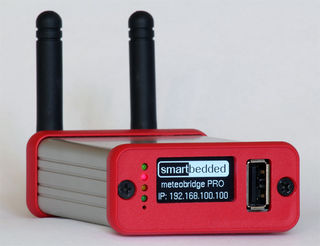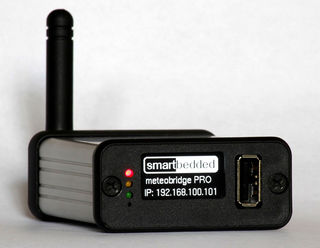Difference between revisions of "Hardware"
(→Compatibility Overview) |
|||
| Line 4: | Line 4: | ||
==Compatibility Overview== | ==Compatibility Overview== | ||
| − | Over time new hardware revisions of devices originally supported by Meteobridge did show up. Some of those are no longer capable to be reflashed with a Meteobridge image some are. Table below does | + | Over time new hardware revisions of devices originally supported by Meteobridge did show up. Some of those are no longer capable to be reflashed with a Meteobridge image some are. Table below does gives you an overview of supported devices and hardware versions. |
{| style="background:none" border="1" cellpadding="5" cellspacing="0" | {| style="background:none" border="1" cellpadding="5" cellspacing="0" | ||
|+ Supported Devices | |+ Supported Devices | ||
| Line 50: | Line 50: | ||
|WL-330N3G | |WL-330N3G | ||
| | | | ||
| − | |Some models can be flashed via a TFTP client. You cannot see from the outside if the device you have is supported | + | |<font color=red>Some models can be flashed via a TFTP client. You cannot see from the outside if the device you have is supported.</font> |
|} | |} | ||
| + | |||
==TP-LINK TL-MR3020== <!--T:2--> | ==TP-LINK TL-MR3020== <!--T:2--> | ||
Revision as of 17:37, 21 January 2018
Meteobridge can be used with a variety of miniature consumer routers from TP-LINK, one from D-Link and one from ASUS, or you can by a Meteobridge PRO which comes on dedicated hardware. The devices from TP-Lin, D-Link and Asus are converted into a Meteobridge by flashing a new firmware. As always when you flash un-official firmware to a device you are voiding the manufacturers warranty. That means, when the device gets faulty later on, you can't reach out to TP-LINK, D-Link or ASUS for warranty. smartbedded UG, which owns the Meteobridge software, does also not provide any warranty on flashed device. As the routers are very cheap and risk of bricking the device is minimal, you don't have a significant financial exposure. However, you have to know, that you are converting the router into a Meteobridge at your own risk. If you don't want to take the risk, please buy a ready-made Meteobridge solution from one of the resellers or you go with a Meteobridge PRO.
Contents
Compatibility Overview
Over time new hardware revisions of devices originally supported by Meteobridge did show up. Some of those are no longer capable to be reflashed with a Meteobridge image some are. Table below does gives you an overview of supported devices and hardware versions.
| Manufacturer | Model | Version | Remark |
| TP-Link | MR3020 | 1.x | Can be flashed via stock web interface. |
| TP-Link | MR3020 | 3.x | Still work in progress, not released yet. Can only be flashed via TFTP. Due to lack of working Mediatek Open Source Drivers currently no WLAN operation possible. |
| TP-Link | MR3040 | 1.x | Not supported, outdated Device. |
| TP-Link | MR3040 | 2.x | Can be flashed via stock web interface. |
| TP-Link | WR703N | 1.0 - 1.6 | Can be flashed via stock web interface (a bit complicated as it is in Chinese language). |
| TP-Link | WR703N | 1.7 and above | Not supported. |
| D-Link | DIR 505 | A1, A2 | Can be flashed via stock web interface. |
| Asus | WL-330N3G | Some models can be flashed via a TFTP client. You cannot see from the outside if the device you have is supported. |
TP-LINK TL-MR3020
TL-MR3020 from TP-Link is a tiny WLAN router, which is word-wide available for less than $40. Please make sure not to get a Version 3 unit, which is marked as Version 3 on the sticker on the packaging. All other versions (1.9 for example) can be flashed fine. Flashing the unit with Meteobridge firmware makes the router a Meteobridge. Meteobridge firmware is tested with currently sold TL-MR3020. This router hardware comes with the following features:- 4 MB flash
- 32 MB RAM
- One LAN port
- Internal WLAN (no external antenna)
- USB 2.0 only port (not capable of driving USB 1.x devices, will need a USB 2.0 Hub inbetween)
- A couple of activity LEDs (USB, LAN, WLAN)
- Illuminated button on the top
- Dimensions: 2.9 x 2.6 x 0.9 inch (74 x 67 x22 mm)
- Weight: 2.0 oz (58 g) without accessories
- Temperature: -10°C ~60°C operating (-40°C~80°C storage)
- Humidity: 10%~90% operating (5%~90% storage)
- Power Consumption: 1-2 watts
- Certificates: CE, FCC, RoHS
- As a consumer router world-wide available from TP-Link
- Street price below $40
TP-LINK TL-WR703N
Warning: Hardware revisions up to 1.6 are supported, most recent version 1.7 is currently not supported!
TL-WR703N from TP-Link is the little brother of TL-MR3020. While technical specs are nearly identical it comes with an even smaller form factor and less LEDs for signaling status. TP-LINK does sell WR703N just on the China market, but you can easily get one via ebay for less than $30. Meteobridge is tested on hardware revision 1.6 of this router. Router hardware comes with the following features:- 4 MB flash
- 32 MB RAM
- One LAN port
- Internal WLAN (no external antenna)
- USB 2.0 only port (not capable of driving USB 1.x devices, will need a USB 2.0 Hub inbetween)
- One activity LED
- Reset button behind a pinhole at the back
- Dimensions: 2.2 x 2.2 x 0.7 inch (57 x 57 x 18 mm)
- Weight: 1.3 oz (36 g) without accessories
- Temperature: -10°C~60°C operating (-40°C~80°C storage)
- Humidity: 10%~90% operating (5%~90% storage)
- Power Consumption: 1 watts
- Certificates: no indication of CE, FCC, RoHS
- only available for China market from TP-Link, but easy to get worl-wide via China-based ebay sellers
- Street price: below $30
ASUS WL-330N3G
WARNING: newest version of this device does not allow to be flashed with Meteobridge firmware. You can't tell from the outside if a specific WL-330N3G router is part of this new, blocking production batch or an older version that can be updated fine. Therefore, it is no longer recommended to buy this hardware, when you want to flash it to become a Meteobridge. We will continue to support successfully flashed "old" versions.
This tiny router from ASUS has similar specs like the ones from TP-Link. Flashing the unit is a bit more complicated (cannot be done via web interface, needs TFTP in a prepared LAN) but it can handle USB 1.x and USB 2.0 devices without need for an additional USB hub. Please do not confuse this router with its predecessor WL-330N, which is not suitable for Meteobridge.- 4 MB flash
- 32 MB RAM
- One LAN port
- Internal WLAN (no external antenna)
- USB 2.0 port (capable of driving USB 1.x and USB 2.0 devices)
- A couple of activity LEDs (Power, USB, LAN, WLAN)
- One button on the top and a non-functional reset button behind a larger pin hole at the bottom
- Dimensions: 90 x 38.9 x 12.8 mm (LxWxH)
- Weight: 1.3 oz (35 g) without accessories
- Power Consumption: abt. 1-2 watts
- Certificates: CE, FCC, RoHS
- As a consumer router world-wide available from ASUS
- Street price: depends on region, cheaper in Europe/Asia (30 Euro), more expansive in the US ($50)
D-Link DIR-505
DIR-505 from D-Link is a tiny WLAN router, which is word-wide available for less than $40. Flashing the unit with Meteobridge firmware makes the router a Meteobridge. Meteobridge firmware is tested with DIR-505 A1 and A2 models. This router hardware comes with the following features:- 8 MB flash
- 64 MB RAM
- One LAN port
- Internal WLAN (no external antenna)
- USB 2.0 only port (not capable of driving USB 1.x devices, will need a USB 2.0 Hub inbetween)
- One activity LEDs
- User accessable utton on one of the sides
- reset button at the USB/LAN connector panel behing a pinhole
- Dimensions: 2.68 x 1.65 x 2 inch (68 x 42 x 51 mm)
- Weight: 3.67 oz (104 g) without accessories
- Temperature: 0°C ~ 40°C operating
- Humidity: 0%~90% operating (non-condesing)
- Power Consumption: 1-2 watts
- Certificates: CE, FCC, RoHS
- As a consumer router world-wide available from D-Link
- Street price below $40
TP-LINK TL-MR3040
TL-MR3040 from TP-Link is a tiny WLAN router, which is word-wide available for less than $40. Flashing the unit with Meteobridge firmware makes the router a Meteobridge. Meteobridge firmware is tested with currently sold TL-MR3040 which are version 2.x. This router hardware comes with the following features:- 4 MB flash
- 32 MB RAM
- One LAN port
- Internal WLAN (no external antenna)
- USB 2.0 only port (not capable of driving USB 1.x devices, will need a USB 2.0 Hub inbetween)
- A couple of activity LEDs (USB, LAN, WLAN)
- Reset button behind pin hole near USB port
- Dimensions: 3.9 x 2.4 x 0.6 inch (100 x 62 x 16 mm)
- Weight: 3.3 oz (94 g) without accessories
- Temperature: -10°C ~60°C operating
- Humidity: 10%~90% operating (no condensing)
- internal 2000mAh rechargeable battery
- Power Consumption: 1-2 watts
- Certificates: CE, FCC, RoHS
- As a consumer router world-wide available from TP-Link
- Street price below $40
Meteobridge PRO
Meteobridge PRO is specialized hardware for Meteobridge. You can only buy it fully installed with SW and license and yes, it is more expansive then reflashing one of the miniature plastic routers above. But it also offers much more:- 16 MB flash
- 64 MB RAM
- One LAN port
- Internal WLAN with external RPSMA antenna
- 2 external USB 2.0 ports that can also handle USB 1.x devices
- Internal 8 GB USB storage
- optional: Internal RF receiver (Meteostick) to directly read out Davis ISS RF data
- LEDs for RF reception, network traffic, data storage, system status
- 128x64 graphical OLED (black/white)
- Internal sensors for temperature, humidity, pressure, voltage, power
- Power Consumption: 1-2 watts
- Reset button behind pin hole on front panel
- Dimensions: 57 x 95 x 27 mm
- Weight: 130 g with antennas, without accessories
- Temperature: -10°C ~ 60°C operating
- Humidity: 10%~90% operating (no condensing)
- Certification: CE, IC, FCC, RoHS
- International power supply
